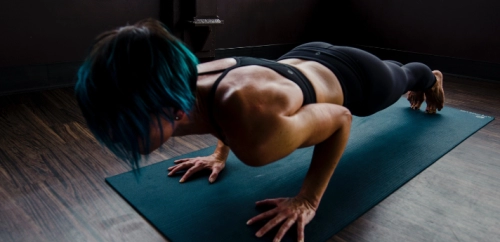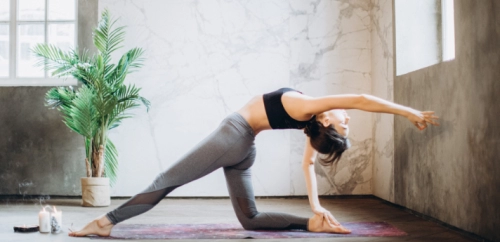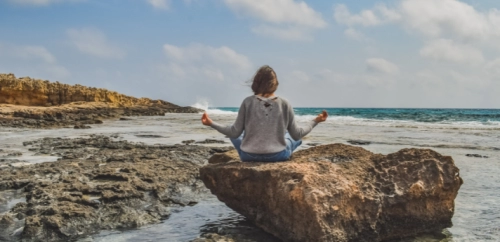Building A Successful Mindfulness Practice: The Core Mindfulness Attitudes To Cultivate

Everything that happens in our life can bring up feelings and emotions. These triggers can have us living in the past or in the future many times. Worrying about what was and what will be will keep you in a constant state of agitation, and this could lead to some very serious mental and physical health problems.
That is why mindfulness is so useful as it helps you retrain your brain and emotions to be in the present. That being said, some core mindfulness attitudes come from being consistent with mindfulness practice. These attitudes will allow you to reduce your stress and anxiety and live a happier and healthier life.
So let's take a quick look at each mindful attitude and what it can bring to your life.
Core Attitudes of Mindfulness
Cultivating a mindfulness attitude is key to having a successful mindfulness practice. By really stocking the fire of these core attitudes, you will be able to handle the trials and tribulations of life that are thrown at you daily. You will be able to do this while ensuring your mental, emotional, spiritual, and physical health stays good.
So here are some of those mindfulness attitudes that you will find present in your life on a daily basis once you begin practicing your mindfulness exercises and skills:
Non-Judgment
It is only human to judge situations. This mental skill was created through a necessity as we evolved to be able to assess dangers throughout our daily lives. When triggered, this can activate your flight response. That type of judgment is beneficial, but when it's placed on a personal level it can be quite a hindrance.
One of the mindful attitudes that will be useful in developing a mindfulness practice is removing that judgmental inclination. This will allow you to see things more clearly and not be so reactive. In other words, you'll be able to not only hear yourself when you're judging yourself as a person, but when you are judging experiences and other people as well. This will allow for better relationships and empathy.
Tolerance & Patience
Trying to force things to unfold on your schedule is only going to serve to create more anxiety and stress in your life. Everything happens in its own time and for its own reason, so patience and tolerance are a must when it comes to any mindful attitudes that you are trying to cultivate. Really working on allowing everything to occur in its own time is viable because it has you living in the present as opposed to worrying about the future.
Beginners Mind
Maybe the most important mindfulness attitude that needs to be a core principle in your practice is looking at everything with fresh eyes. We are so often sculpted by the beliefs of our society and our families that we are blind to other experiences. Mindfulness will help you create that beginner's mind.
Looking at a situation, a culture, or a person with fresh eyes allows you not to place any expectations or assumptions on whatever you're seeing for the first time. With this, you'll be able to craft new perspectives, and that, in turn, will lead to eye-opening experiences.
Trust Yourself
Many of us walk through life being unsure of our feelings and actions. Mindfulness and meditation allow you to really work on creating that trust that is necessary to live a happier and healthier life. You have to be able to be receptive and open to learning from all of your experiences, whether they were successful or turned out to be mistakes. In the end, as long as you trust your heart and your gut, you will be able to stay in the present and experience your life to its fullest.
Intentionally Being Present
Sometimes when people here are OK with a non-doing mentality, they think that equates to being lazy. But in the case of mindfulness, this just means being present with what is happening in your life.
By being present and understanding intentions, it's often easier to let go of the reins a bit and to allow things to unfold naturally. Of the mindful attitudes we are looking at, this one might be the hardest because it does mean you have to live in the moment and accept the emotions that come from it.
Seeing Things As They Are
By playing things over and over again in our heads, oftentimes we wind up in this cycle of toxicity that serves to make us wary. So working on and building the ability to be present in every aspect of your life is a mindfulness attitude that is core to having a good practice. You need to be able to accept what is happening and either choose to live with it or make changes.
Accepting things does not mean that you will be OK with everything, but that you understand the experience and the emotions it brings forward. You can react to it once you have acknowledged and accepted what has happened. This will allow you to have sustainable growth and make changes that can help you heal from past trauma.
Go With the Flow
Mindfulness is, as we've said before, about being in the present period, which means that you have to understand that life happens. There are going to be tragedies and there is going to be joy. Each of these experiences is vital to your growth. You have to be able to take it in, accept it, and then let it go.
Life is a constant ever-moving ocean, and you have to be able to ride the tide, or you will drown. This is why meditation is so good, because it allows you the stillness to process situations and release them into the air to rebalance your energy and allow you to regain tranquility.
Gratitude
The mindfulness attitude that most people encounter first is learning to be grateful. When you think about this, you also have to think about generosity. When you're cultivating mindfulness because you're living in the present and allowing yourself to acknowledge life and its constant ebb and flow, you find yourself being able to be grateful for what you have, and when you're grateful for what you have, you often tend to be more generous to others. You will find yourself being more generous with your time and your emotions.
How to Develop These Attitudes
Some of these core mindfulness attitudes are going to take patience and dedication to really cultivate. You will need to create a mindfulness exercise regime within your life that allows you to really dive deep into them. There are a lot of exercises and ways you can do this, and below we've listed a few of the easiest ones to begin with:
- Meditation - Meditation allows you to create a mindful attitude. These two principles go hand in hand because meditation allows you to really quiet yourself and become in tune with your body and your environment. This keeps you living in the present and allows you to dive deep into your emotions and thoughts.
- Me Time - It can be hectic, and no matter if you're a single woman who is career-focused or a stay-at-home mom that has tons of chores to do, you have to really look at self-care as a mindfulness attitude. You need to be able to take time to do things that you enjoy so that you can stay in the present and have peace of mind.
- Observation - The best way to learn to be present and cultivate the mindfulness attitudes we discussed above is to be observant. No matter what situation you are in, when you stop and take in your surroundings with all your senses, you can't help but be present in that moment.
- Breathwork - Mindfulness attitudes can be worked on in many different ways, but all of them include mindfulness. This exercise can help you relieve anxiety and even reduce pain in some situations. There are many different techniques, but the core principle of this idea is really taking in the breath and feeling it fill your lungs, and allowing it to exhale any negative energies that you have accrued through the situation or the day.
Final Thoughts
Having a mindful attitude encompasses a lot of core principles in any mindfulness practice. No matter where you are at on your mindfulness journey, though, we are sure you've seen some of these mindfulness attitudes appearing in your everyday life and finding that they have helped you live a happier and healthier life.















